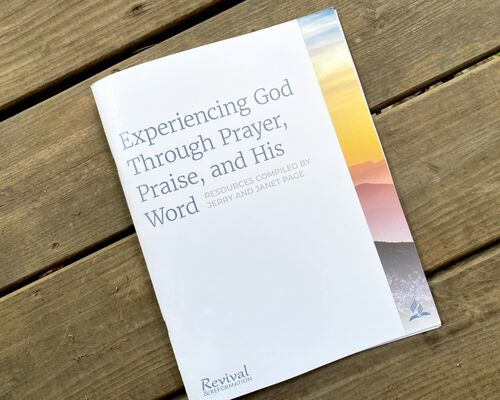Maleachi 1
Gottes Liebe zu Israel
1 Dies ist die Last, die der HERR ankündigt über Israel durch Maleachi.
2 Ich habe euch lieb, spricht der HERR. Ihr aber sprecht: »Wie hast du uns lieb?« Ist nicht Esau Jakobs Bruder?, spricht der HERR; und doch hab ich Jakob lieb
3 und hasse Esau und habe sein Gebirge öde gemacht und sein Erbe den Schakalen zur Wüste.
4 Und wenn Edom spricht: Wir sind zerschlagen, aber wir wollen das Zerstörte wieder bauen!, so spricht der HERR Zebaoth: Werden sie bauen, so will ich abbrechen, und man wird sie nennen »Land des Frevels« und »Das Volk, über das der HERR ewiglich zürnt«.
5 Das sollen eure Augen sehen, und ihr werdet sagen: Der HERR ist herrlich über die Grenzen Israels hinaus.
Gegen minderwertige Opfer
6 Ein Sohn soll seinen Vater ehren und ein Knecht seinen Herrn. Bin ich nun Vater, wo ist meine Ehre? Bin ich Herr, wo fürchtet man mich?, spricht der HERR Zebaoth zu euch Priestern, die meinen Namen verachten. Ihr aber sprecht: »Womit verachten wir deinen Namen?«
7 Damit, dass ihr opfert auf meinem Altar unreine Speise. Ihr aber sprecht: »Womit opfern wir dir Unreines?« Damit, dass ihr sagt: »Des HERRN Tisch ist für nichts zu achten.«
8 Denn wenn ihr ein blindes Tier als Opfer darbringt – ist das etwa nicht böse? Und wenn ihr ein lahmes oder ein krankes darbringt – ist das nicht böse? Bring es doch deinem Statthalter! Meinst du, dass du ihm gefallen werdest oder dass er dich freundlich ansehen werde?, spricht der HERR Zebaoth.
9 Und nun bittet doch Gott, dass er uns gnädig sei! Von euch ist solches geschehen. Meint ihr, er werde euch freundlich ansehen?, spricht der HERR Zebaoth.
10 Dass doch einer unter euch die Türen zuschlösse, damit ihr nicht umsonst auf meinem Altar Feuer anzündet! Ich habe kein Gefallen an euch, spricht der HERR Zebaoth, und das Opfer von euren Händen ist mir nicht angenehm.
11 Denn vom Aufgang der Sonne bis zu ihrem Niedergang ist mein Name herrlich unter den Völkern, und an allen Orten wird meinem Namen ein Räucheropfer und ein reines Opfer dargebracht; denn mein Name ist herrlich unter den Völkern, spricht der HERR Zebaoth.
12 Ihr aber entheiligt ihn damit, dass ihr sagt: »Des Herrn Tisch ist unrein, und sein Opfer ist für nichts zu achten, samt seiner Speise.«
13 Und ihr sprecht: »Siehe, welch eine Mühsal!«, und facht das Feuer an, spricht der HERR Zebaoth, und ihr bringt herzu, was geraubt, lahm und krank ist, und bringt es dar zum Opfer. Sollte mir solches gefallen von eurer Hand?, spricht der HERR.
14 Verflucht sei der Betrüger, der in seiner Herde ein gutes männliches Tier hat und es gelobt, aber dem Herrn ein fehlerhaftes opfert. Denn ich bin ein großer König, spricht der HERR Zebaoth, und mein Name ist gefürchtet unter den Völkern.
Die Bibel nach Martin Luthers Übersetzung, revidiert 2017, © 2016 Deutsche Bibelgesellschaft, Stuttgart.
Kommentar
“When you bring injured, crippled or diseased animals and offer them as sacrifices, should I accept them from your hands” says the Lord (Malachi 1:13).
I was once asked to give some advice to a group of 18-year-old students. I told them that, at age 18, they were at a time of life when they were probably getting a lot of advice like this: “Follow your heart. Sacrifice everything for your dreams. Never, ever, ever, ever, give up.”
But I told them my advice was different. “My advice,” I told the students, “is to give up your dreams.” They just looked at me.
I acknowledged that my counsel was a little unusual. When I say to give up your dreams, I told the students, I didn’t mean that they shouldn’t still have dreams and desires in their hearts. They should. And they should work hard at whatever they do.
But we must also be careful not to clutch too tightly to our own plans and dreams, because they can end up becoming too important. They can become a god.
I invited the students to go back home that night and read Malachi 1. It is all about giving up what you most want to hold on to. The Jews in Jerusalem were supposed to bring their best animals for sacrifice. Instead they were bringing their worst.
God said, “When you bring blind animals for sacrifice, is that not wrong? When you sacrifice crippled or diseased animals, is that not wrong? Try offering them to your governor! Would he be pleased with you? Would he accept you?’ says the Lord Almighty” (Mal. 1:8).
Why did it matter to God what kind of animals people used for sacrifice? Because by giving Him their best, they were putting the most faith in Him. A sacrifice, by definition, is supposed to feel like a loss to us. God asks us to release what we want to hold on to—a sacrifice without defect.
Here’s the interesting part: When an animal sacrifice was cooked in the fire, a portion of it typically went to the priest for him to eat. So what the worshipper offered, the worshipper also ate of it. Spiritually speaking, if you offer what’s pure, you benefit from what’s pure. If you offer what’s tainted, you partake of what’s tainted.
Putting our faith in God and giving things up is supposed to feel like a sacrifice. It means letting go of what matters most to us, leaving it on the altar to be refined by the fire of God.
Andy Nash, Professor
Southern Adventist University





